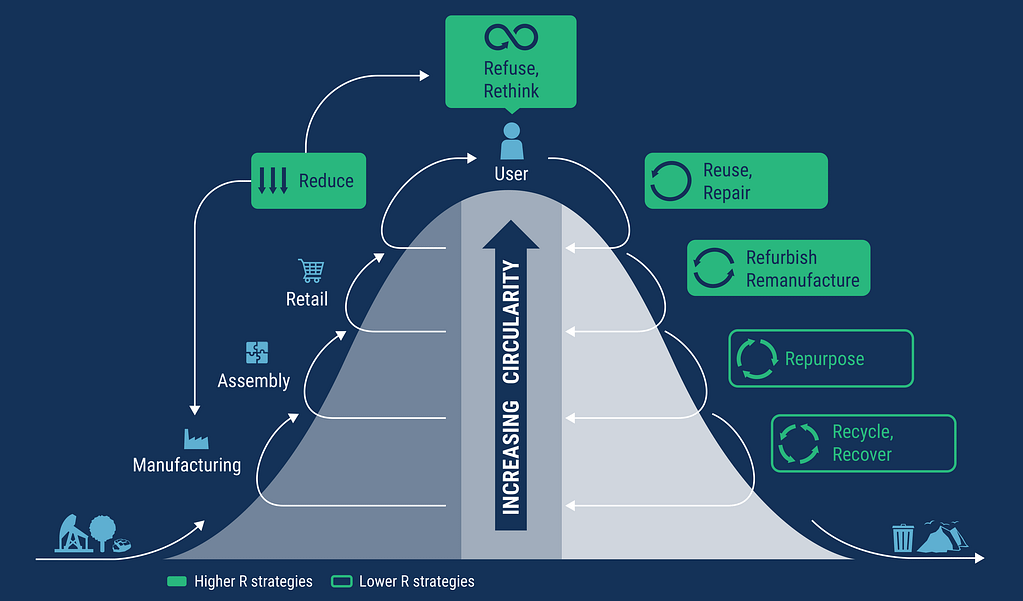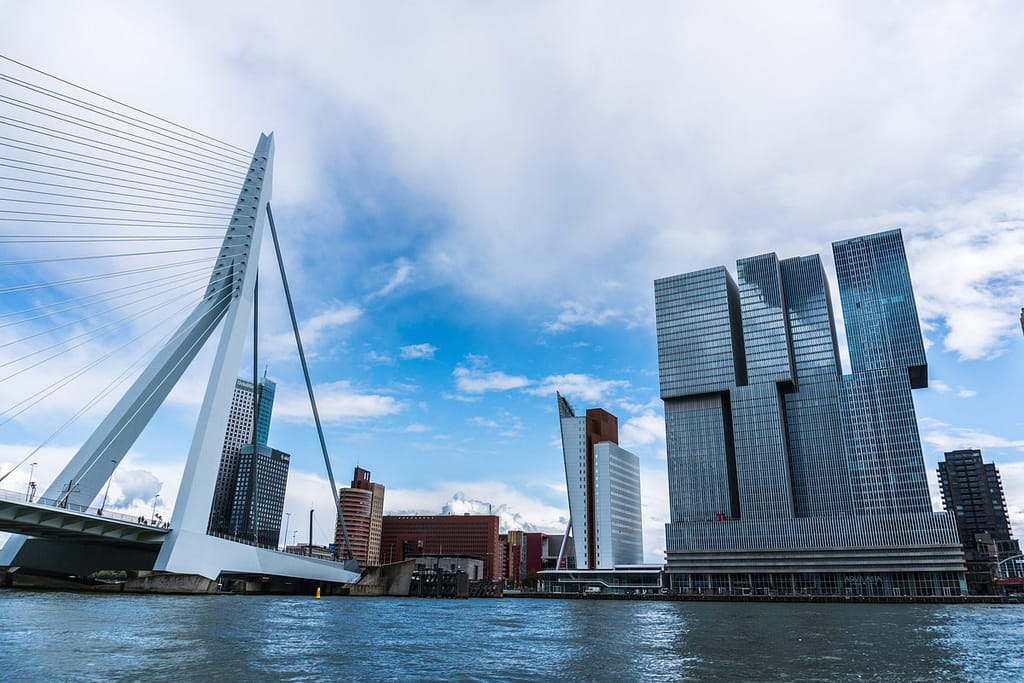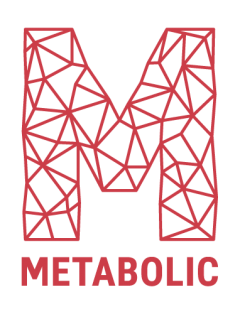The paper “Financing Circular Economy Innovation in the Netherlands” proposes an ‘ecosystem approach’ to circular economy financing.
Achieving a circular economy in the Netherlands could create approximately 200,000 new jobs by 2030. Yet circular economy entrepreneurs whose activities have the potential to provide high-quality employment opportunities struggle to access funding.
The paper Financing Circular Economy Innovation in the Netherlands authored by Metabolic Institute with support from the Goldschmeding Foundation, reveals a large funding gap for circular economy initiatives in the Netherlands, particularly early-stage circular ventures.
Interviews with city municipalities, entrepreneurs, financial institutions and working groups indicate that the funding gap is especially acute for higher value-yielding circular business models and activities such as reducing, reusing, repairing, and refurbishing. It is these activity types that have the largest potential to increase the economy’s resource efficiency, lower its impacts, and provide high-quality employment opportunities in cities.

Finance as a lever
The research highlights a lack of systemic collaboration as a critical barrier to circular innovation, and proposes new collaborative approaches to circular economy financing in the Netherlands.
“Blended finance instruments, in particular, can help to address circular economy related risks, and make the circular economy more investable for the private sector,”’ said Seadna Quigley, Lead Circular Finance at Metabolic.
Public-private collaboration in the form of blended finance works to de-risk circular asset classes by using public or philanthropic capital to stimulate the market, provide proof-of-concept, and draw private-sector capital into the circular economy.

“But lack of funding is not the only problem facing Dutch circular economy entrepreneurs,” said Liz Corbin, Director of Metabolic Institute. “They also lack access to experts and the necessary knowledge to navigate the funding landscape.”
Building a ‘circular innovation ecosystem’
To address current bottlenecks, the paper proposes the creation of a mission-driven investment fund and ‘innovation ecosystem’ that convenes impact investors, philanthropies, and city governments.
Numerous Dutch cities have impressive track records when it comes to circular economy plans, but access to finance is one of their most significant barriers to delivering on these plans.
In addition to systemic impact investing and fundraising, the fund will aim to create a circular innovation ecosystem that brings together capital, knowledge, and networks of expertise to provide entrepreneurs in the circular economy with the financial and non-financial resources they need to scale up their businesses.
“We believe that circular innovation and job opportunities are created by financing circular entrepreneurs. But financing alone is not enough; we have to build a support system for entrepreneurs on an urban level,” said Birgitta Kramer, Circular Economy Programme Manager at the Goldschmeding Foundation. “The ‘Circular Innovation Ecosystem’ is a first step towards guiding financiers, entrepreneurs and local governments to collaborate in this approach.”
The Circular Innovation Ecosystem (CIE) aims to support Dutch cities not only in achieving their circularity targets, but critically on regional recovery and employment strategies for building back better in light of the COVID-19 pandemic.
A call to action
An impact- and mission- driven finance ecosystem has potential to accelerate the transition to a circular economy that equitably distributes prosperity to all and safeguards the natural world.
We invite the following stakeholders to collaborate with us to advance the development of such an ecosystem:
- Financier or investors with creative ideas and strategies for stimulating early-stage circular innovation in the Netherlands
- Asset owner or fund managers with the curiosity to develop and test impact-driven frameworks for portfolio management and evaluation
- Accelerators or incubators committed to supporting Dutch circular innovators and entrepreneurs
- Circular innovators or entrepreneurs interested in matching higher value circular solutions to the contexts and challenges of Dutch municipalities
- Municipalities looking for novel ways to deploy finance in service of circularity strategy
To learn more, please send an email to the CIE team at: [email protected]




